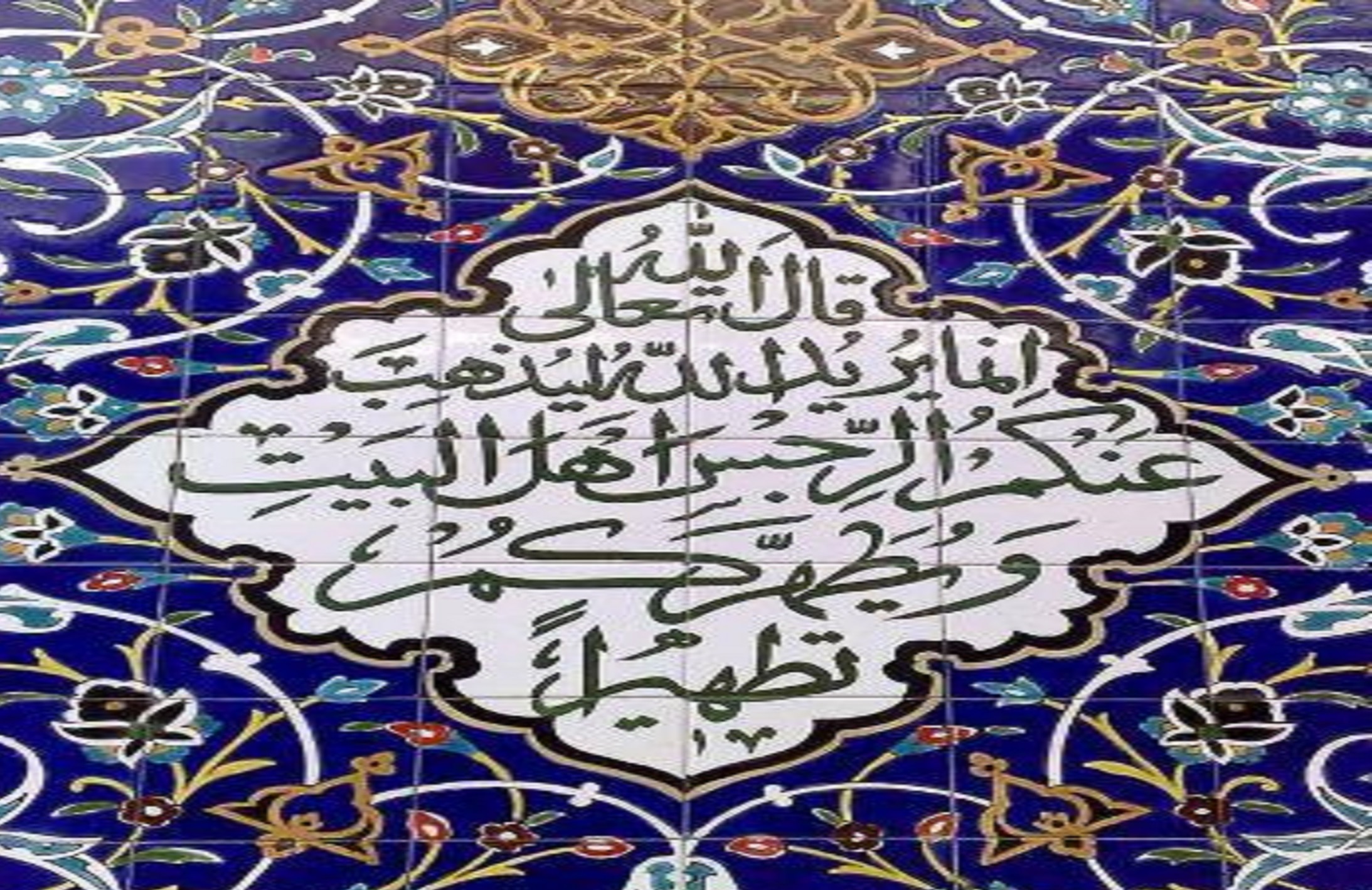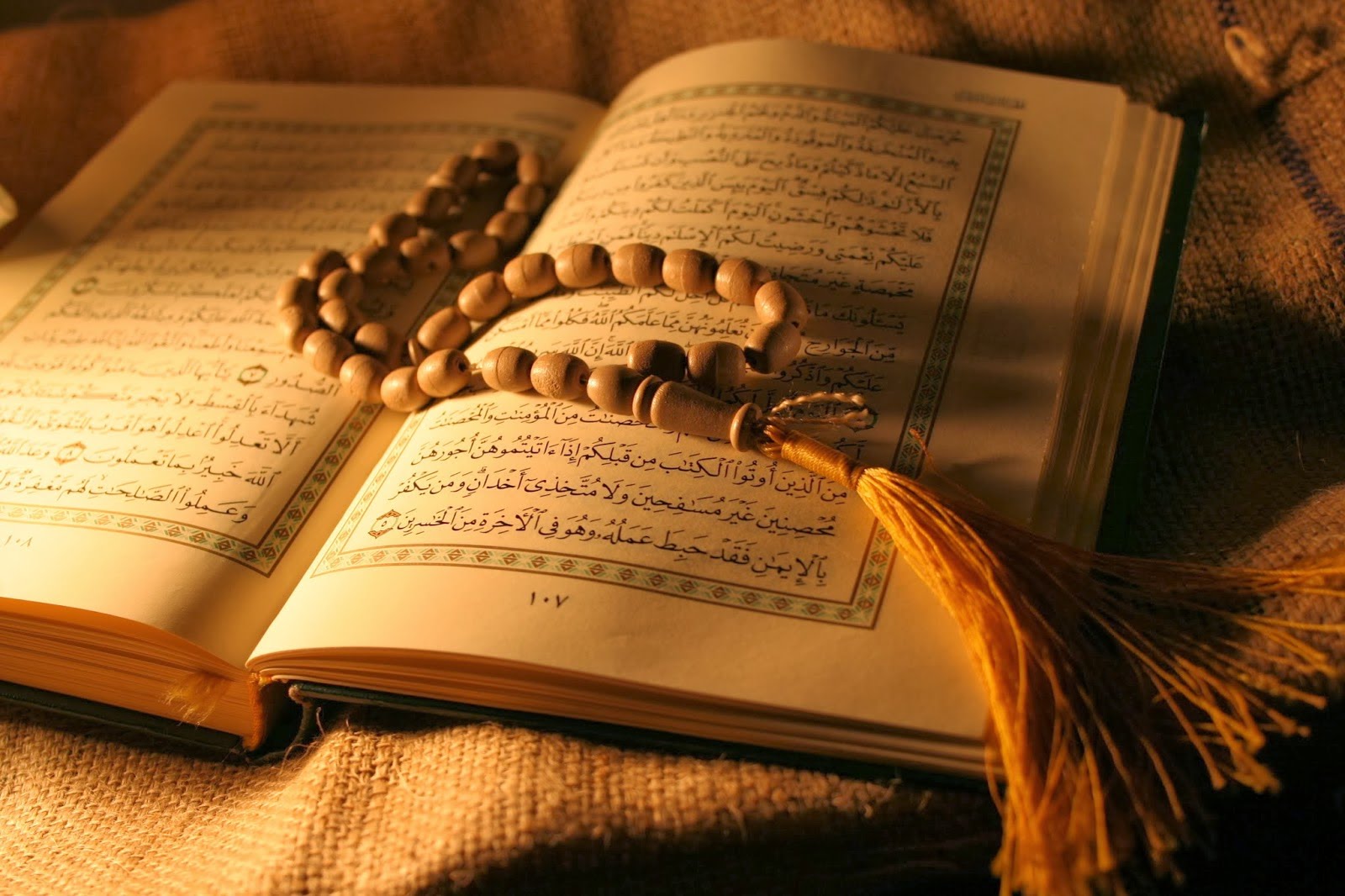The Verse of Tatheer and the contradictory views of the Ahle Sunnah scholars ( Part I) – The first Group
The bud of Islam blossomed in Mecca and after twenty three years of hardships, Islam spread through the entire Arabian Peninsula. This divine mission, on the 18th of Zul Hajj, reached the field of Ghadeer-e-Khum and was handed over to the first Muslim, Ameerul Momineen Ali b. Abi Talib (a.s.). On that day, with the announcement of the mastership and successorship of Imam Ali (a.s.), divine bounties were completed and the religion of Islam attained perfection and was announced as the only accepted religion near Allah. On this day, the disbelievers, polytheists and the enemies of Islam lost their hopes of destroying Islam.
Within a few days, few of the Holy Prophet’s (s.a.w.a.) companions, after his (s.a.w.a.) martyrdom, in continuation of their existing conspiracies, introduced deviation in the path of guidance and leadership. They shut the gate of the city of knowledge and put the Muslims in confusion and deviation. These people right from the initial days of their rule, prohibited the writing of prophetic traditions, spread doubts amongst the people through fabricated traditions and mixed the real Islamic concepts with satanic conspiracies.
It is very clear that despite all these conspiracies, the true concepts of Islam and the invaluable traditions of the Holy Prophet (s.a.w.a) were protected and propagated thanks to the efforts of Imam Ali (a.s.) and a few sincere companions. These personalities stood in the face of doubts and satanic confusions by speaking the truth and made the actual concepts clear for everyone.
Scholars of Ghaibat al-Kubra like Shaikh Mufeed, Sayyid Murtuza, Shaikh Tusi, Khwajah Naseer, Allama Hilli, Qazi Nurullah Shustari, Mir Hamid Husain, Sayyid Sharafudin, Allama Amini (may Allah have mercy on them) are the shining stars of this field as they have taken great efforts to reply to the doubts in defense of the school of the Ahle Bait (a.s.) and in spreading the true Islamic teachings. Even today, there are scholars active in this field.
In this article, we have introduced excerpts from the fourth section of Ayatullah Sayyid Ali Husaini Milani’s book – The Verse of Tatheer and the contradictory views of the Ahle Sunnah scholars.
We hope this small effort is a cause of happiness of Imam-e-Zamana (a.t.f.s.).
The Verse of Tatheer
“Allah only intends that he keeps all impurities away from you, O Ahle Bait (a.s.) and purifies you as purification is truly deserved.”
[Surah Ahzab (33): 33]
The verse finds itself amidst the verses revealed regarding the wives of the Holy Prophet (s.a.w.a.). In this article, we do not wish to discuss on its context, rather we shall focus on its meaning and the contradictory views of the Ahle Sunnah scholars regarding this verse.
The Three Groups of Sunni Scholars on the basis of the meaning of the Verse of Tatheer
The first group of Sunni scholars, despite having clear explanations regarding the meaning, the context and the traditions regarding this verse, refuse to accept the reality because this acceptance could lead to the nullification of their beliefs.
On the other hand, they claim to be the followers of the Sunnah of the Holy Prophet (s.a.w.a.) and claim to act accordingly. Obviously, they are confused with regards this verse and are unable to come to a common view on it.
The three groups on the Verse of Tatheer:
Group 1 – This group is in conformity with the Shia school of thought with respect to this verse. They have genuinely believed in the Sunnah of the Holy Prophet (s.a.w.a.) and have acted upon it.
Group 2 – This group is in conformity with the beliefs of Ikramah, Khawaarij and Maqaatil. Maqaatil is the same person about whom Al-Zahabi has written that people are unanimous in avoiding him.
Group 3 – This group too believes against the Sunnah of the Holy Prophet (s.a.w.a.) and the great companions and conforms to the views of Zahhaak. Zahhaak is the person regarding whom the scholars of the Ahle Sunnah have concluded that his narrations are weak.
An example from the 1st group
Abu Jafar Ahmad b. Muhammad b. Salamah Misri Hanafi Tahaavi (exp 321 A.H.) has written a book on this titled Sharh Mushkil al-Aasaar in which he has brought a chapter with the topic of “Traditions concerning the people mentioned along with the Holy Prophet (s.a.w.a.) in the verse of Tatheer”. Then he narrates the following tradition under this topic:
Rabi Muradi narrates from Asad b. Musa who narrates from Hatim b. Ismail who narrates from Bukair b. Masmaar who narrates from Aamir b. Saad who has narrated from his father that Saad says:
“When the verse of Tatheer was revealed, the Holy Prophet (s.a.w.a.) called Imam Ali, Hazrat Fatima, Imam Hasan and Imam Husain (peace be upon them) and said, “O Allah, these are my Ahle Bait”
Under this tradition, Tahaavi says, “From this tradition, it can be concluded that the people mentioned in this verse are the Holy Prophet (s.a.w.a.), Imam Ali, Hazrat Fatima, Imam Hasan and Imam Husain (peace be upon them)”.
He further mentions from Fahad who from Usman b. Abi Shaybah from Jurair b. Abdil Hameed from Aamash, from Jafar from Abdul Rahman Bajali from Hakeem b. Saeed who narrates that Umme Salamah (r.a.) informed: The verse of Tatheer has been revealed for the Holy Prophet (s.a.w.a.), Imam Ali, Hazrat Fatima, Imam Hasan and Imam Husain (peace be upon them).” After mentioning the words of Umme Salamah (r.a.), he writes that conclusion derived from this tradition is the same as that derived from the previous tradition.
In continuation, Tahaawi presents this incident through various chains narrating from Umme Salamah (r.a.) pointing out the clear text which leads to the conclusion that this verse is about the Ahle Bait (a.s.) like the tradition in which Umme Salamah (r.a.) requested the Holy Prophet (s.a.w.a.): “Whether I am part of them (Ahle Bait)?” The Holy Prophet (s.a.w.a.) replied, “You are among the wives of the prophet and are on goodness” or he (s.a.w.a.) said, “Your end is on goodness”.
In another tradition Umme Salamah (r.a.) mentions that she said, “O Messenger of Allah, am I from the Ahle Bait?” He (s.a.w.a.) replied, “Your position near Allah is good”. She (r.a.) says that I was expecting the prophet (s.a.w.a.) to reply in the affirmative as such a reply would be more valuable to me than the love of the east and the west.
Similarly, in another tradition Umme Salamah (r.a.) says that I lifted the cloak so that I could be a part of them. The Holy Prophet (s.a.w.a.) pulled it away and said, “You are on goodness”.
Tahaawi further records,
“The tradition in which the Holy Prophet (s.a.w.a.) addresses Umme Salamah (r.a.) proves that she was not a part of the group for whom this verse was revealed and those comprising of the group are the Holy Prophet (s.a.w.a.), Imam Ali, Hazrat Fatima, Imam Hasan and Imam Husain (peace be upon them) and nobody else.
In this chapter, among other traditions, Tahaawi has brought the tradition from Umme Salamah (r.a.) in which the Holy Prophet (s.a.w.a.) has said, “You are from my family”
Tahaawi, in order to remove the contradiction between these two traditions, one of which clearly mentions the five personalities only as the Ahle Bait (a.s.) says, “The reason for the Holy Prophet (s.a.w.a.) to tell Umme Salamah (r.a.) that she was from his family can be understood from another tradition in which Muhammad b. Hajjaj Harazmi and Sulaiman Kaisani have narrated that Bashar b. Bakr has narrated from Auzaai from Abu Ammar from Waasilah who said that I asked the Holy Prophet (s.a.w.a.) whether I was from him. He replied, you are from me. Waasilah says, this was from my greatest wishes.”
Waasilah was not related to the Holy Prophet (s.a.w.a.) as he was from the tribe of Bani Basas and not from Quraish. While the position of Umme Salamah (r.a.) in Quraish was a special one due to her being the wife of the Prophet. The Holy Prophet (s.a.w.a.) telling Waasilah that he was from him implies that he was given this status due to his obedience and belief and the following Quranic verse supports this view
“And Nuh called out to his Lord, O my Lord, my son is from my family”
Allah said to Nuh, “He is not from you family,”
[Surah Nuh (71): 45-46]
One who believes in him (s.a.w.a.) is from him even if he is not from his family.
It is possible that the Holy Prophet (s.a.w.a.) informing Umme Salamah (r.a.) that she is from him is in the same context as the above example of Waasilah.
Tahaawi further says that the tradition of Saad and the other traditions which have been mentioned in the beginning clarify who are the Ahle Bait (a.s.) because we know that at the time of the revelation of this verse when the Holy Prophet (s.a.w.a.) called his family members, he only considered the five pure personalities worthy of being included in this verse. Hence it is impossible that someone else can be considered as the Ahle Bait (a.s.).
A Doubt
The Noble Quran itself proves that this verse is about the wives of the Holy Prophet (s.a.w.a.) because in the verses prior to this verse, Allah addresses the Holy Prophet (s.a.w.a.) with respect to his wives thus:
“O prophet, say to your wives….”
This address clearly shows that the verse of Tatheer is regarding the wives of the prophet (s.a.w.a.) because the ones spoken about in these verses are women and not men and immediately there is the verse of Tatheer.
Our Reply
The addressees in the verses before the verse of Tatheer are the wives of the prophet (s.a.w.a.). But the addressees in the verse of Tatheer are men as the words used in this verse are used for men (the pronoun KUM). But the pronoun used in the previous verses is NA which is used for women. From this we conclude that the addressees in the verse of Tatheer are men, whose greatness and purity is being announced by Allah in this verse.
Then Tahaawi says that for our point of view to be correct, there is a tradition which is narrated in which he says that when the Holy Prophet (s.a.w.a.) left home for the morning prayers he would say, “Time for prayers O my Ahle Bait” and then he (s.a.w.a.) would recite the verse of Tatheer.
A similar tradition is narrated by Abu Hamzah who says, “I was with the Holy Prophet (s.a.w.a.) for nine months. Each morning, he (s.a.w.a.) would go to the house of Hazrat Fatima (s.a.) and say – Peace be upon you O Ahle Bait of the Prophet – and then recite the verse of Tatheer” This action of the Holy Prophet (s.a.w.a.) also shows that the verse of Tatheer is revealed only for the five pure personalities.



